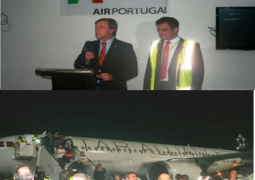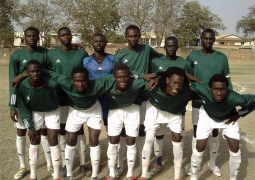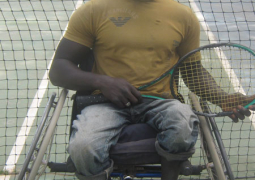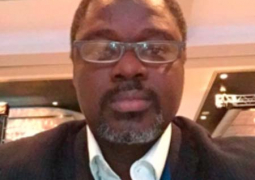Recent events in Africa’s most populous country, Nigeria has generated and continues to generate a lot of debate not only amongst politicians and intellectuals but ordinary people as well. Nigeria as a country is no stranger to crisis and bloodshed, for this has been a continuous feature of its existence since independence from Britain in 1960.
Much of its chequered history has been defined by animosity between the Muslim dominated North and Christian dominated South, which led to successive military coups from 1966 to 1999 and the bloody civil war of 1967 to 1970 in which one million people died. The country weathered these storms and with the coming of democracy in 1999, hopes were high that at long last, the country would unite into a strong federation. Even the Niger Delta crisis that erupted during the Yar’adua presidency was often seen by many analysts as an attempt by the residents of the oil producing regions to demand a fair share of the petrodollars.
Yet as a negotiated settlement was reached between the federal government and the Delta militants, the country was still riddled with violence as armed robberies, kidnappings for ransom, inter-tribal and inter-religious warfare became increasingly frequent and worrying. This provided the perfect breeding ground for the fanatical Islamist group called Jama’atul Ahlis Sunna Liddawa’ati Wal Jihad, popularly known as Boko Haram, to rise into prominence in 2002.
Boko Haram, which means ‘western education is forbidden’, is a salafist jihadist organization established in 2002 by a radical cleric, Ustaz Muhammed Yusuf, who was born in Yobe State in northern Nigeria. Originally, Boko Haram was a moderate Islamist group that conducted its activities quite peacefully by opening a complex in Maiduguri, capital of Borno state. This complex enrolled students from predominantly poor families both within Northern Nigeria and neighboring Chad and Niger. The group became reclusive and its activities were confined to the safe corridors of the complex, far detached from the outside world. Here recruits were indoctrinated and taught the ‘pure’ form of Islam, which frowned on anything regarded ‘western’, such as western education, culture and dress. Whether the Borno state government kept a blind eye or was unaware of the group’s activities remains contested.
The professed aim of the group was and still is the overthrow of the secular state and replacing it with a strictly based sharia theocracy. From 2002 to 2009, the group recruited members, mostly young unemployed youths, indoctrinated them and later sent them to preach and spread the group’s ideology.
Things came to a head in 2009 when Boko Haram activists launched a series of coordinated attacks on government institutions in Borno state. Fighting ensued as government forces fought street battles with militants in which dozens of people were killed. Federal troops had to intervene to quell the unrest and the school as well as the mosque complex was captured. The group then relocated to Kanama village in Yusuf’s home state of Yobe. He was later captured, and executed in unexplained circumstances at the state police headquarters. His death was hailed as a great success against the group, and Boko Haram went underground. Yusuf was succeeded by Abubakar Shekau, his former protégé.
The group re-emerged in 2010 with a number of brazen attacks on churches, police stations, military barracks and other high profile government buildings in Borno and Yobe states. The conflict engulfed four other Northern states and soon reached the Federal Capital Territory of Abuja, where a deadly car bomb exploded near celebrations marking Nigeria’s golden jubilee. The attack on the United Nations building in the capital was a turning point in Boko Haram’s campaign of terror. The message was clear- even the UN is a target as a symbol of the infidel’s power.
Since then the violence has become more frequent, daring and ruthless. The federal government, headed by Goodluck Jonathan seems powerless in stopping it. A climate of fear, anxiety and suspicion pervades Nigerian society, as people ponder how to stop the violence. Many people may wonder why Boko Haram is waging such war on the Nigerian government and its people and how the group has risen from an obscure anti-secularist mob into a well-organized militant group that has taken on the hugely powerful Nigerian state and its security apparatus.
From the onset, the group has said that it wants to overthrow the secular state and replace it with sharia, despite the fact that most of the Northern states had sharia. But for a country as diverse as Nigeria, evenly divided between Islam and Christianity, any sober and realistic individual will agree that turning the whole country into an Islamic theocracy is unattainable.
Therefore Boko Haram may be described as a group of disaffected fanatics who want to redefine political life in Northern Nigeria by challenging the status quo that dates back to pre-colonial times. Nigeria as a country and the North as a region are controlled by very powerful elites, most of them hereditary and entrenched culturally and politically. In the North, this political and religious elite is rich and well-connected. This status quo has alienated the poor and ignorant from the political process, thus providing reactionary groups like Boko Haram the perfect breeding ground to get recruits.
In conclusion, therefore, the Federal and Regional governments in Nigeria have to rise to the challenge posed by Boko Haram, which continues to bomb and kill security forces and civilians on a daily basis. Attempts to talk to the militants have so far proved futile as the group has shown its unwillingness to sit on the negotiating table, but rather talk through bombs and shootings. The government should empower the security services, especially the domestic intelligence service, the SSS, to comprehensively study the activities of the group, its collaborators and sources of finance. Such a move will disrupt their activities and deny them the finances to wage war.
Most importantly, the Nigerian government should move fast to invest in the poor regions of the country where most of Boko Haram’s recruits tend to come from. The youths in these Northern states should be empowered with the requisite education, skills and employment to improve their lives and give them a future. Military action alone cannot solve the problem as it requires a combination of interventions to stem the tide.
But as it stands, the politicians in Abuja keep playing the blame game, whilst Boko Haram continues its rampage on innocent civilians.
Read Other Articles In Article (Archive)

Exploring more markets, TAP Air Portugal makes inaugural flight to Banjul
Oct 31, 2019, 12:21 PM




